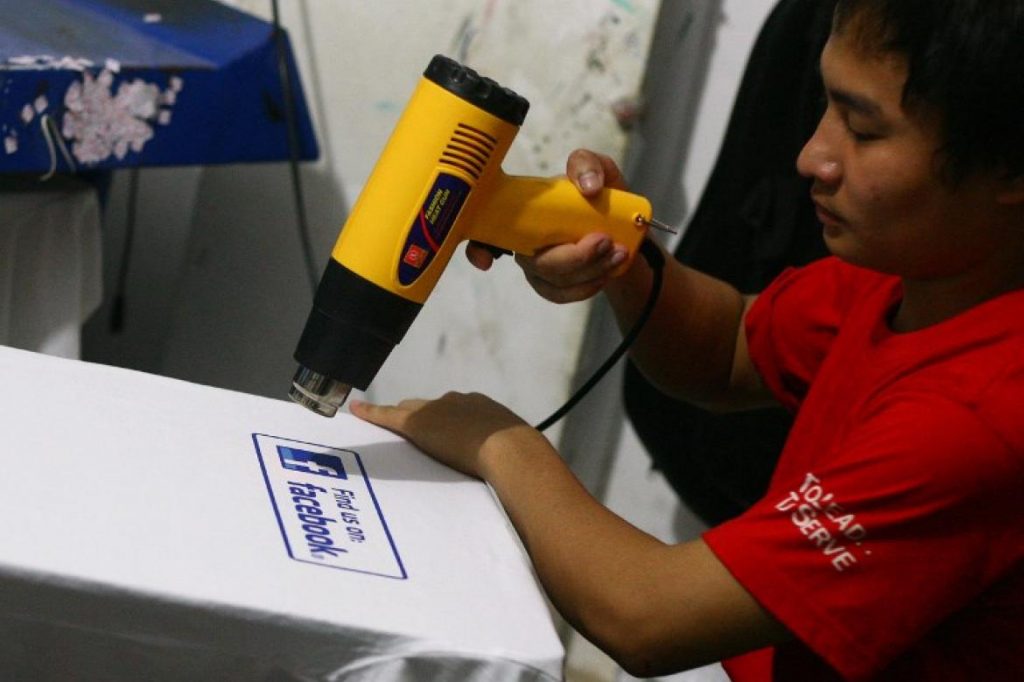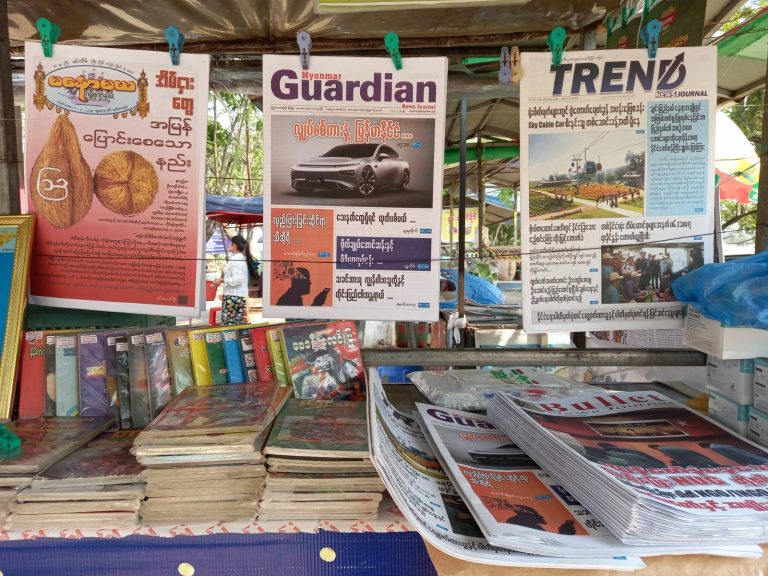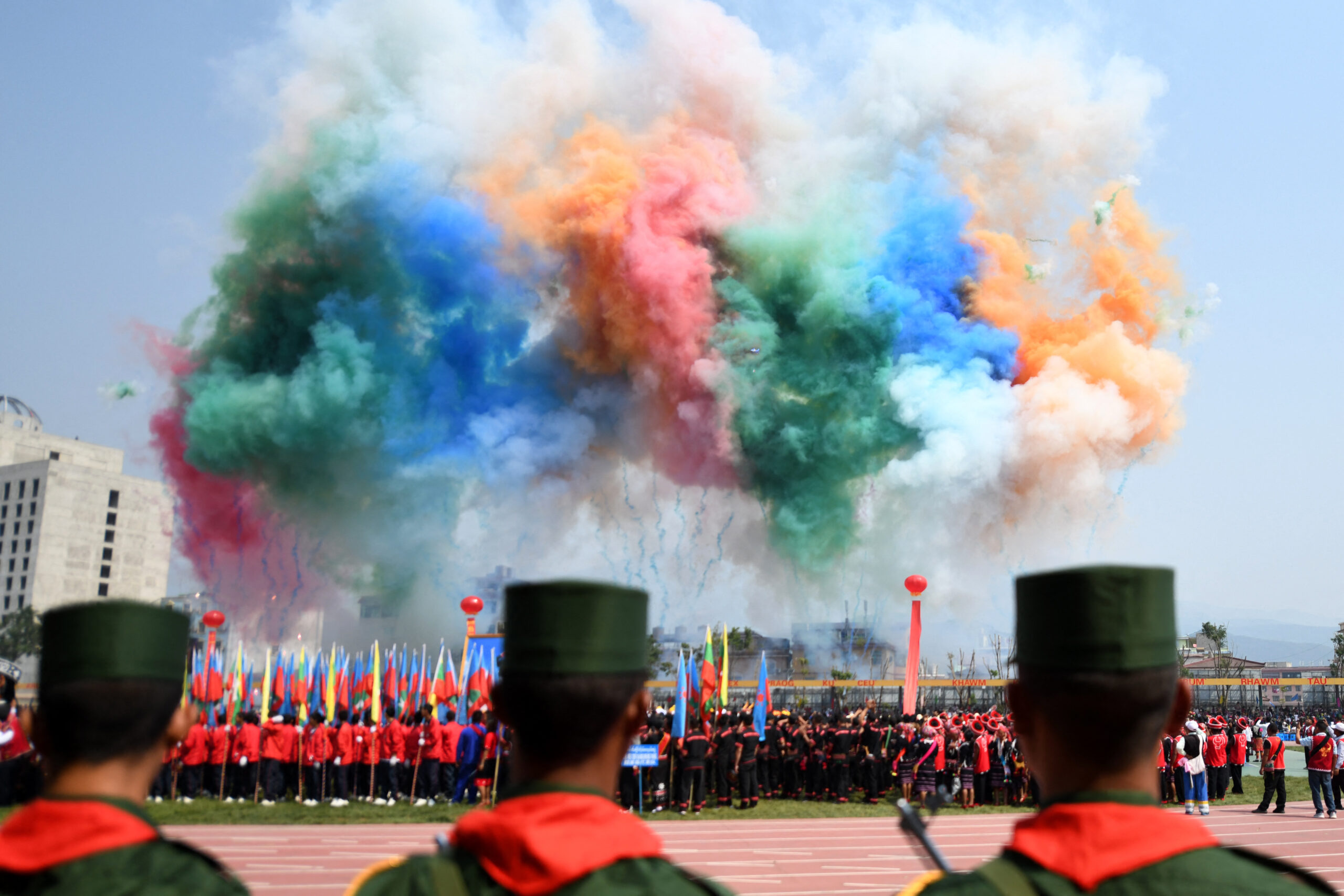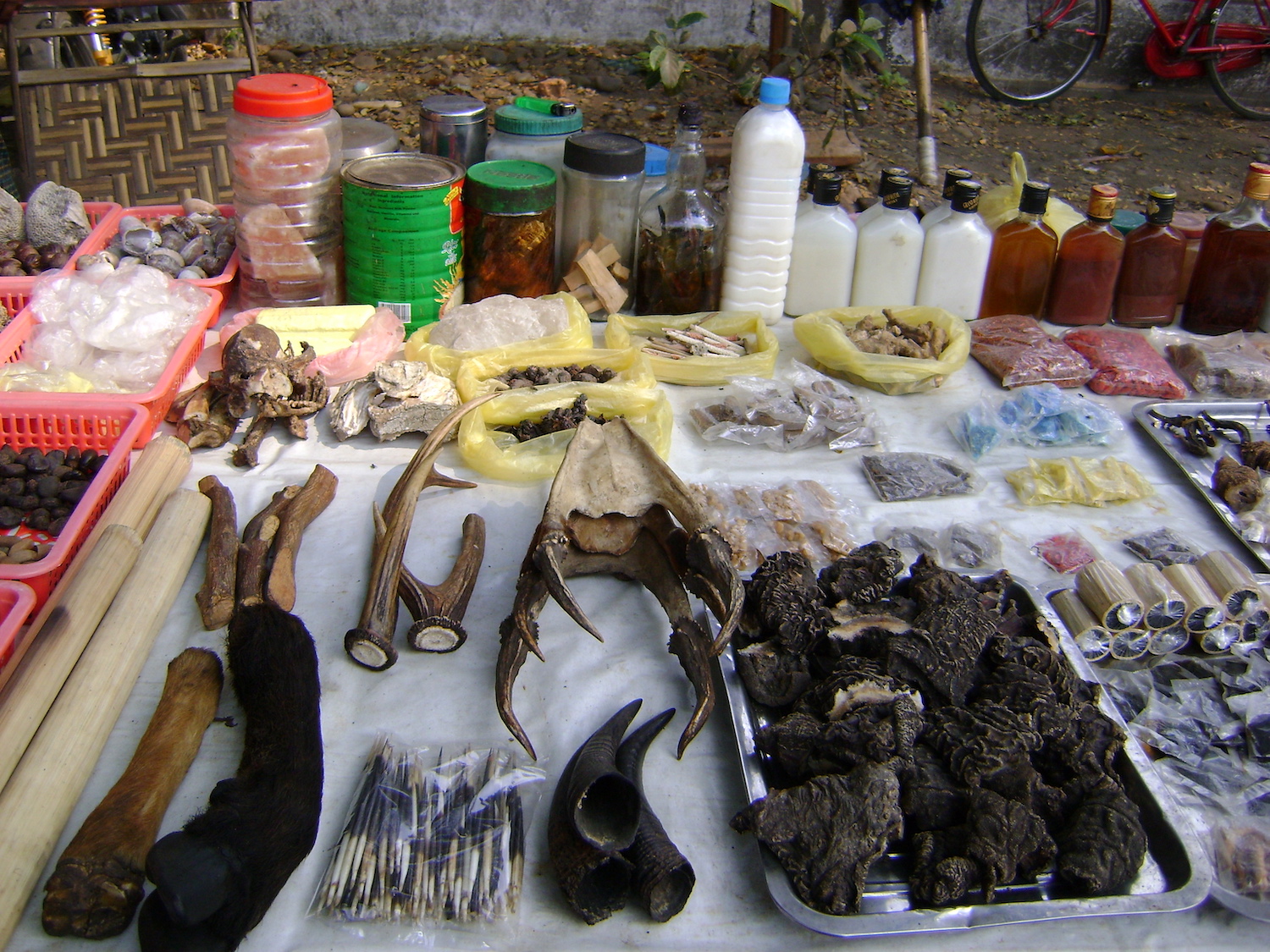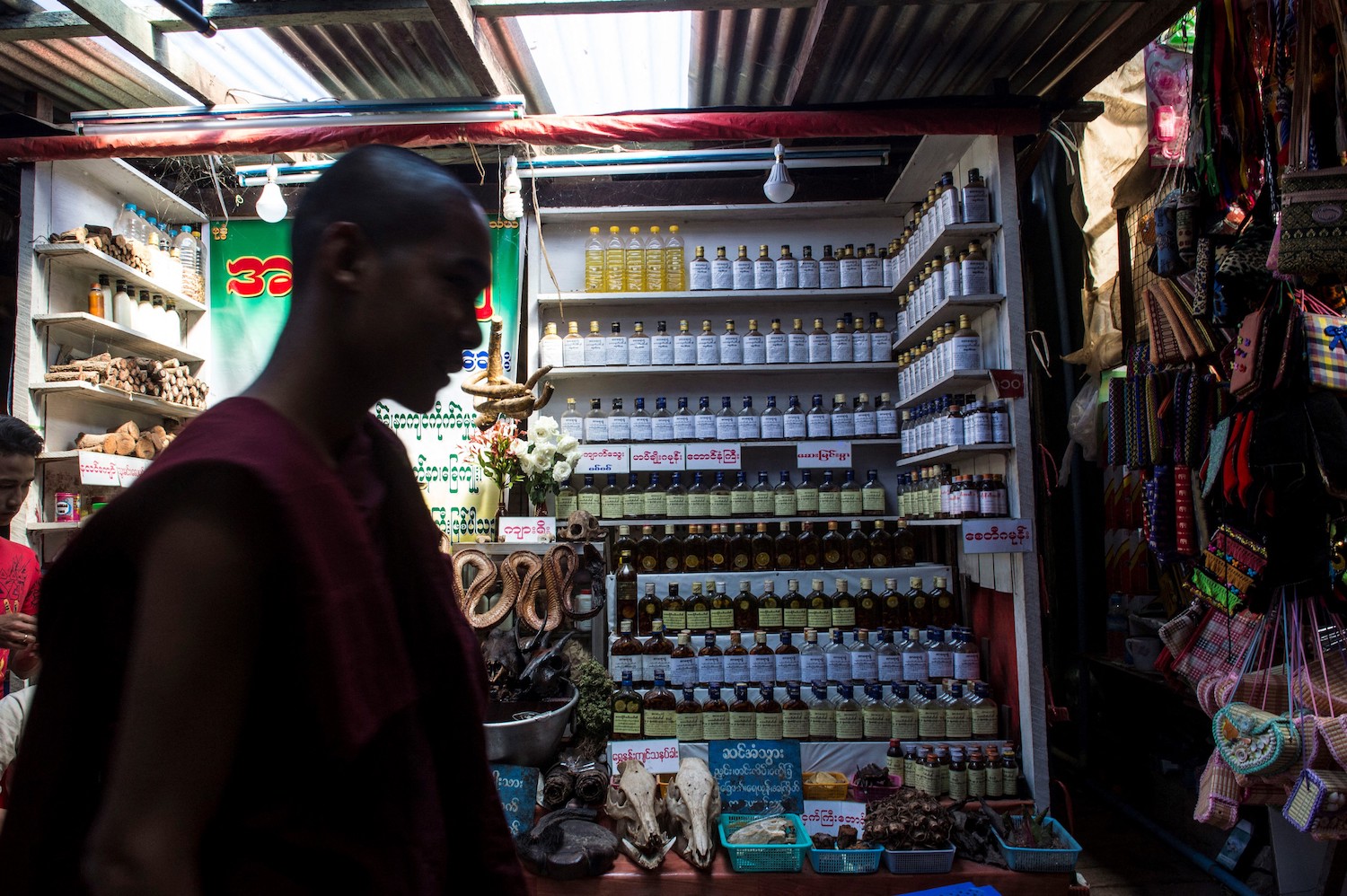By AFP
YANGON – A whoop of disbelief erupted in the small office used by anti-hate speech activists in Myanmar when they spotted the name that had dropped into their email inbox: Mark Zuckerberg.
In a week that saw the Facebook CEO field questions in Washington over privacy breaches and election interference, angry online warriors have thrust Myanmar and its volatile social situation into the forefront of the debate on how to fix the platform.
They say Facebook is used as a tool to spread incendiary posts, bringing bloodshed to the largely Buddhist country that has expelled some 700,000 Rohingya Muslims to Bangladesh since late last year.
“It’s not just problematic. It’s dangerous and they need to take more responsibility,” said Ma Htaike Htaike Aung, executive director of the Myanmar ICT for Development Organization (MIDO), which promotes digital rights.
Support more independent journalism like this. Sign up to be a Frontier member.
While battling power outages from their front-room office in a Yangon suburb, they penned a letter along with five other Myanmar groups to Zuckerberg questioning his recent assertions about combatting hate speech in the combustible country.
The personal reply and apology from the Silicon Valley boss came as a shock, not least because they had only written to him the night before.
He thanked them for reporting posts on the platform and said Facebook was boosting its Burmese-language staff to “better understand the specific local challenges and build the right tools to help keep people there safe”.
Facebook has come under increased pressure in Myanmar as the Rohingya crisis has intensified.
In January the social media giant removed the account of extremist monk U Wirathu who had spent years posting denigrating remarks about Muslims to an enormous following, and it has also tried to regulate the use of anti-Muslim terminology.
But activists say the platform’s response rate is too slow, with malicious posts gaining traction for more than 48 hours on average before they are removed, by which time they have often gone viral.
A dangerous cocktail
Pressure is building on Facebook regionally after recent violence against Muslims in Sri Lanka, while activists in Vietnam accuse it of helping the government scrub dissident content online.
But the platform is especially powerful in Myanmar, which emerged in 2011 from half a century of military rule that kept people firmly offline.
The country has since leapfrogged into the smartphone era and onto Facebook, which now boasts nearly 30 million active users in a nation of just over 50 million.
Army chief Min Aung Hlaing claims one of the most popular pages in the country with more than 1.3 million followers. Civilian leader Aung San Suu Kyi has some 2 million.
Both understand the platform’s dominance, using their pages to make key announcements.
Facebook serves as an easy one-stop-shop for entertainment, social interaction, work and news for a population that is still “not very highly digitally literate”, according to Jes Petersen, CEO of local tech hub Phandeeyar.
Myanmar has faced widespread condemnation for a brutal military-led campaign against the Rohingya after insurgents attacked border guard posts in August.
United Nations investigators have said hate speech and incitement to violence against the stateless minority are rampant on Facebook and that the site has morphed into a “beast”.
In January, the government posted the names and photos of some 1,300 Rohingya, including at least 46 children, labelling them “terrorists”, in what the UN team called a “clear violation” of the right to a fair trial.
But problems on the platform have been brewing for years.
One example that came up in the Capitol Hill hearing was a photo of local Muslim journalist Ko Aung Naing Soe from November 2016 that circulated on Facebook calling for him to be killed for being a “terrorist”.
The company initially said the post did not violate “community standards” and by the time it was removed it had been shared thousands of times.
The reporter told AFP that the harassment has continued and derogatory Facebook posts are still online urging authorities to “punish” him.
Don’t shoot the Messenger?
In another case, messages were spread last September across Myanmar saying Buddhists and Muslims were each preparing attacks against the other.
Zuckerberg, in an interview with Vox media, said Facebook had detected the messages, an assertion that prompted the activists to write their open letter.
They reminded him that they had been the ones to report the posts and, even then, it took three days for the platform to act, later acknowledged by the Facebook CEO in his apology.
His promises to add technology and dozens more Burmese-language reviewers leave them underwhelmed.
They point out there are some 1,700 Facebook staff in Germany, where there is strict legislation for removing hate speech posts within 24 hours.
For others, however, shooting the messenger is not the answer to Myanmar’s deeply rooted problems.
“Facebook has been used by the government and military as a platform for their propaganda,” says head of Burma Campaign UK Mark Farmaner.
“But it is government laws and policies which deny the Rohingya full citizenship… and are seen as justification for abuses against them.”


